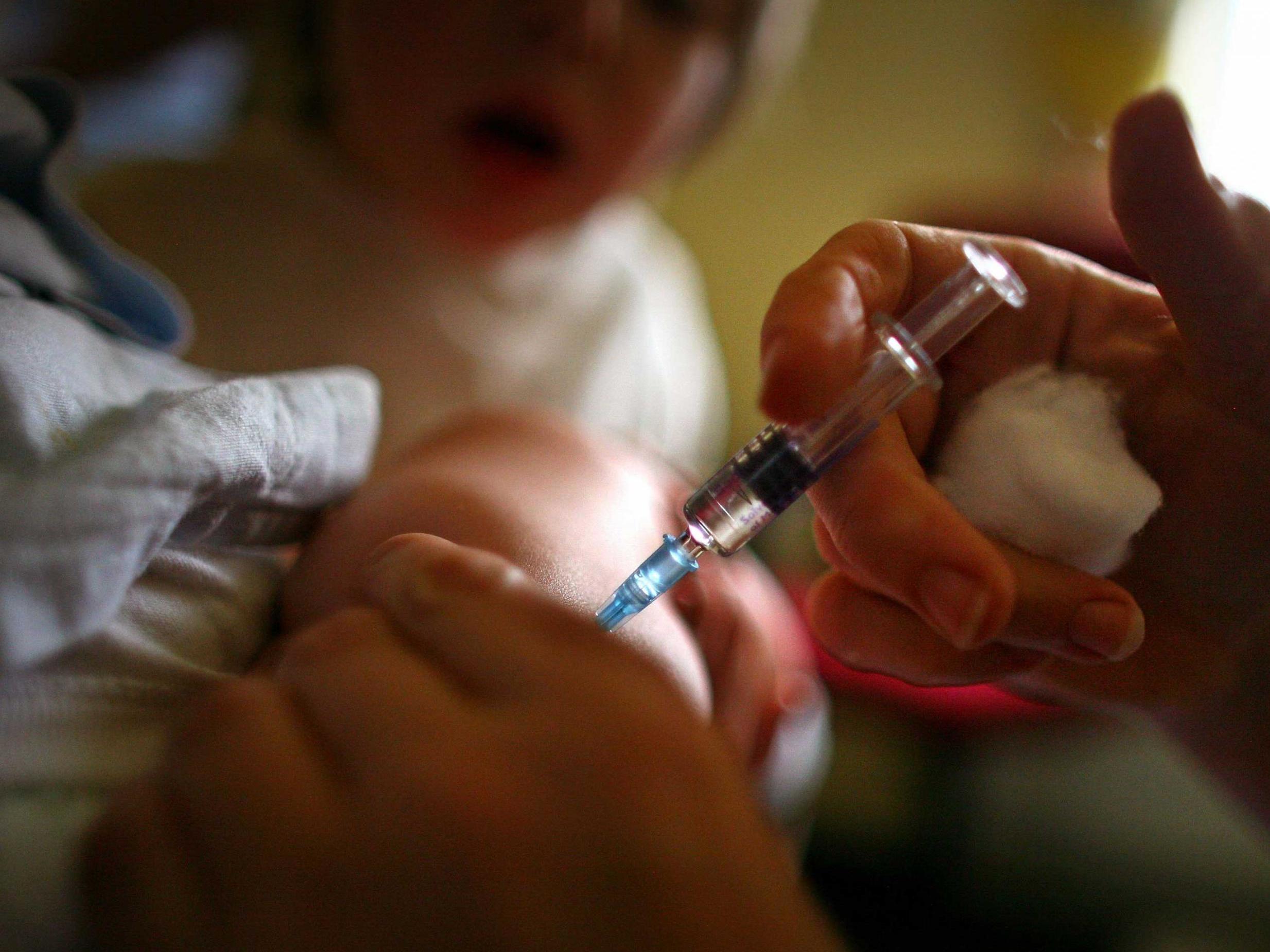Boris Johnson declares war on anti-vaxx movement with campaign to counter vaccine scaremongering
‘We need decisive action to make sure communities are properly immunised,’ prime minister says

Your support helps us to tell the story
From reproductive rights to climate change to Big Tech, The Independent is on the ground when the story is developing. Whether it's investigating the financials of Elon Musk's pro-Trump PAC or producing our latest documentary, 'The A Word', which shines a light on the American women fighting for reproductive rights, we know how important it is to parse out the facts from the messaging.
At such a critical moment in US history, we need reporters on the ground. Your donation allows us to keep sending journalists to speak to both sides of the story.
The Independent is trusted by Americans across the entire political spectrum. And unlike many other quality news outlets, we choose not to lock Americans out of our reporting and analysis with paywalls. We believe quality journalism should be available to everyone, paid for by those who can afford it.
Your support makes all the difference.Boris Johnson has unveiled a campaign to stop the spread of misleading anti-vaxx information and to boost the number of children receiving vaccinations following a rise in measles cases.
Parents will be offered new evidence-based advice to address their concerns about jabs and to correct false information about the dangers of vaccinations, the prime minister will announce.
Just 87 per cent of children have the full dose of the measles, mumps and rubella (MMR) jab, a decline on previous years, which Downing Street says may be linked to the spread of measles.
Mr Johnson has called for health leaders to renew their efforts to ensure 95 per cent have had both doses of the MMR vaccine.
Social media companies will also be called to a summit to encourage them to promote accurate information about vaccination as part of the plans to improve immunisation.
Britain has lost its “measles-free” status with the World Health Organisation (WHO) three years after the virus was eliminated. During the first quarter of 2019, there were 231 cases of measles in the UK.
Speaking ahead of a hospital visit in the southwest, Mr Johnson said he was “determined” to step up efforts to tackle the spread of measles, adding one case of the “horrible” disease was too many.
NHS England will write to all GPs urging them to promote “catch-up” vaccination programmes for MMR, and will seek to strengthen the role of local immunisation co-ordinators to improve uptake.
It comes after a report warned half a million UK children were not immunised against measles from 2010 to 2017.
France, the most vaccine-sceptical nation in the world, where a third of people believe the jabs are unsafe, last year made routine vaccination compulsory.
Mr Johnson added: “This is a global challenge and there are a number of reasons why people don’t get themselves or their children the vaccines they need, but we need decisive action across our health service and society to make sure communities are properly immunised.
“From reassuring parents about the safety of vaccines to making sure people are attending follow-up appointments, we can and must do more to halt the spread of infectious, treatable diseases in modern-day Britain.”
Professor Stephen Powis, medical director at NHS England, said: “People not getting the vaccines they need is leading to a killer disease like measles unnecessarily becoming a health risk for our country again, with the number of cases almost quadrupling in just one year.
“The NHS and the government are right to take action to boost vaccination rates – vaccine rejection and falling uptake is a preventable public health risk and it is vital that people get themselves and their children vaccinated.”
The Department for Health and Social Care (DHSC) will deliver a strategy to address the issue in the autumn, in which the NHS is expected to be asked to use technology to identify who may have missed a vaccination and make booking appointments easier.
Matt Hancock, health secretary, said: “It’s easy to forget how devastating measles can be precisely because vaccines are so effective at preventing it in the first place.
“With this strategy, the whole health system will come together to renew focus on vaccinations – especially for our children – and this time we will eliminate measles for good.”
Dr Mary Ramsay, head of immunisation at Public Health England, said: “Losing our measles-free status is a stark reminder of how important it is that every eligible person gets vaccinated.
“Elimination can only be sustained by maintaining and improving coverage of the MMR vaccine.”
She added: “Measles is one of the most infectious diseases known to man – only one person travelling back to an area with lower vaccination rates can lead to an outbreak.
“Anyone who has not received two doses of MMR vaccine is always at risk.
“Making it as easy as possible for parents to access vaccines so that they can offer their children the best possible start in life is a priority for us, DHSC and for NHS England.”
The anti-vaxx movement, which has been growing across Europe and the US, has links with a number of populist politicians.
Campaigners claim that vaccines and autism are linked – but experts have found it not to be true.
Join our commenting forum
Join thought-provoking conversations, follow other Independent readers and see their replies
Comments